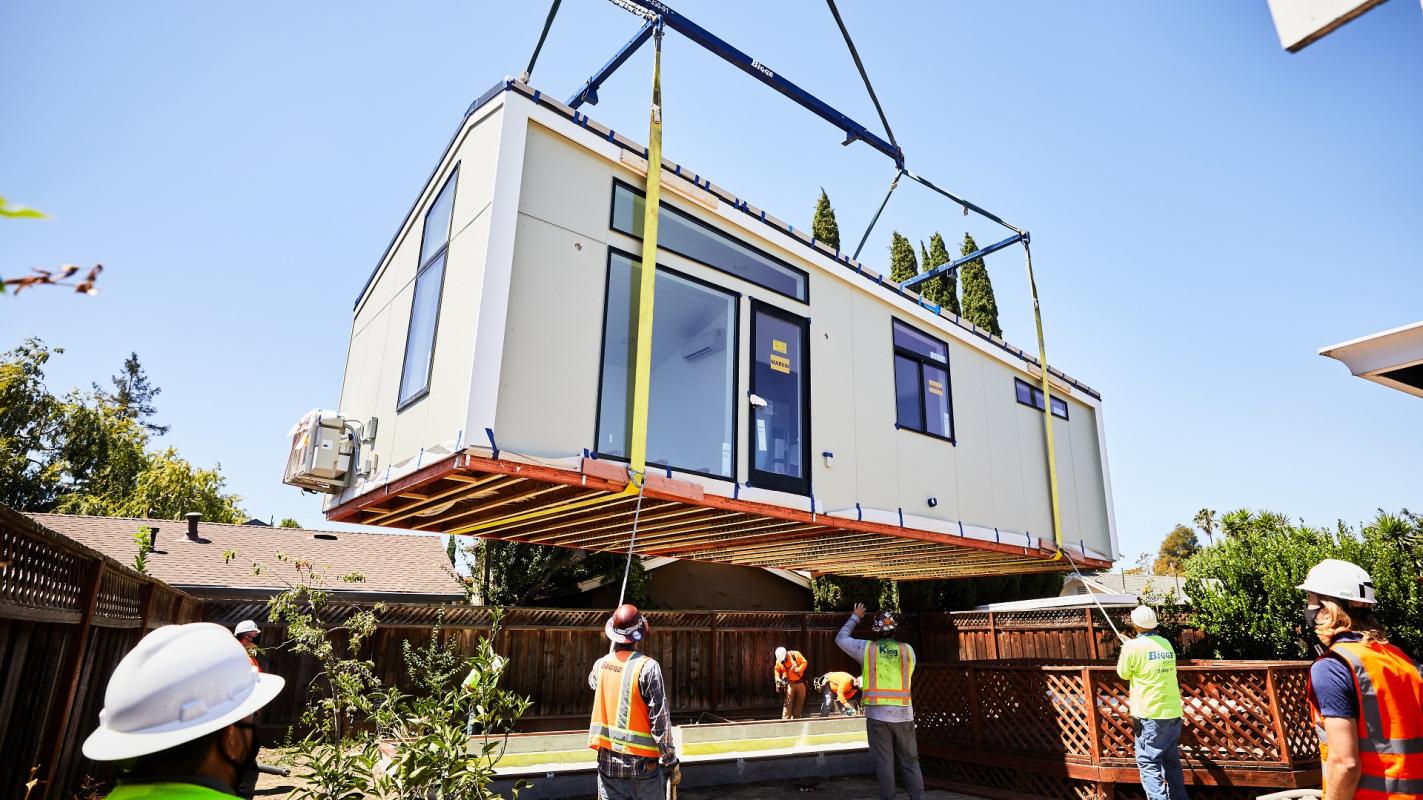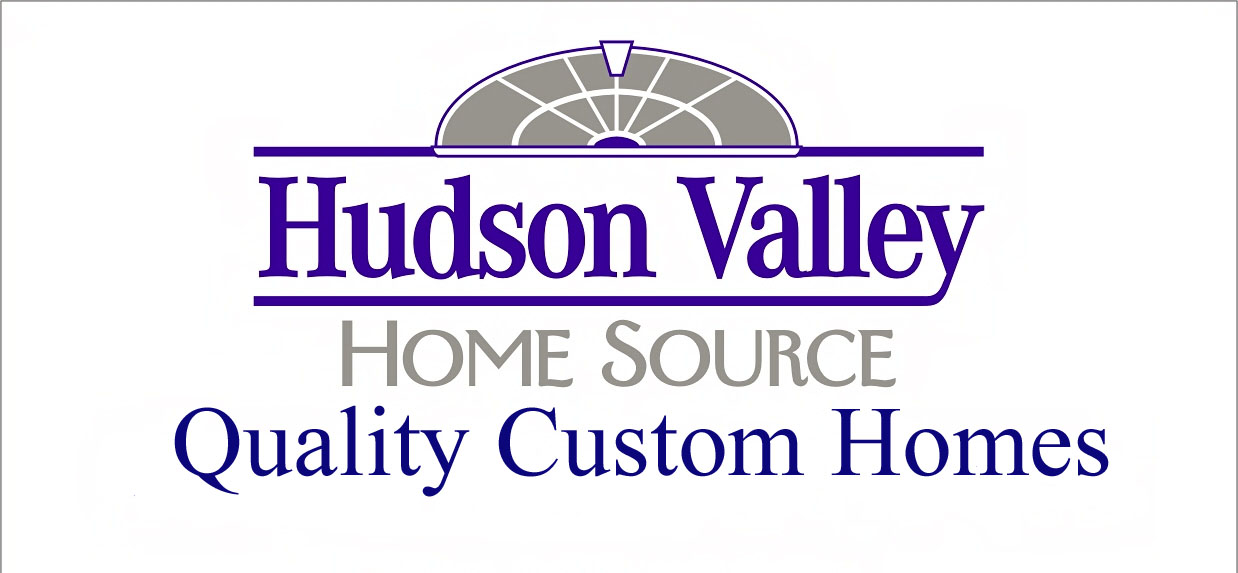Good News for Modular Factories and Builders
On August 6, 2024, Governor Maura Healey signed the Affordable Homes Act into law, introducing sweeping changes to housing regulations in Massachusetts. One of the most significant updates is the statewide legalization of Accessory Dwelling Units (ADUs) in single-family residential zoning districts, effective February 2, 2025.

photo – Westchester Modular Homes
This groundbreaking move removes long-standing zoning barriers, allowing homeowners to build small, independent housing units on their properties without needing special permits or discretionary approvals.
Understanding Accessory Dwelling Units (ADUs)
ADUs are self-contained residential units located on the same lot as a primary home. These units can take different forms depending on how they are constructed. Some ADUs are created within an existing home, such as a converted basement or attic, while others are attached to the main house as an expansion. There are also detached ADUs, which are independent structures like backyard cottages, converted garages, or small modular homes placed on the property.

The new law establishes clear guidelines for ADUs to ensure they remain compatible with the surrounding neighborhoods. ADUs must have their own separate entrance, whether directly from the outside or through a shared hallway that meets state safety codes. To prevent excessive property density, the size of an ADU cannot exceed 50% of the primary home’s total floor space or 900 square feet, whichever is smaller. Municipalities may impose further restrictions, such as additional size limitations or prohibitions on short-term rentals, to maintain community integrity.
Key Provisions of the New ADU Law
One of the most significant changes introduced by the new law is that it amends the Massachusetts Zoning Act (Chapter 40A), requiring ADUs to be allowed by right in single-family zoning districts. In the past, many homeowners faced restrictive zoning laws that required them to obtain special permits before constructing an ADU. Now, they will be able to add an ADU without facing complex approval processes.

Another major change is the removal of owner-occupancy requirements, meaning municipalities cannot mandate that a homeowner live in either the primary residence or the ADU. This allows homeowners to use their property flexibly, whether as a rental investment or as housing for extended family members.
Parking requirements have also been adjusted to prevent unnecessary hurdles. Municipalities cannot require more than one additional parking space for an ADU, and in areas where public transportation is accessible, such as within half a mile of a commuter rail, subway station, ferry terminal, or bus stop, no additional parking will be required at all.

By eliminating these common zoning restrictions, the law creates a simpler, more accessible path for homeowners to add ADUs and expand housing availability across Massachusetts.
A Boost for Modular Housing: ADUs and Prefabricated Units
One of the most exciting aspects of the new ADU law is its potential to accelerate the growth of modular construction and prefabricated ADU solutions. The draft regulations specifically include modular dwelling units as an allowable form of ADU construction, ensuring that factory-built ADUs are treated equally under the law.

The regulations clarify that modular units, including offsite-built ADUs that comply with state building codes and local regulations, are permissible under the revised zoning law. This means that homeowners can purchase modular ADUs from manufacturers and install them on their properties without the risk of municipalities imposing additional design restrictions beyond what is required for traditional site-built ADUs.
For modular homebuilders, this represents a major opportunity to expand their prefabricated ADU offerings and provide scalable solutions to meet rising demand. Since modular ADUs can be constructed offsite in controlled environments, they offer faster completion times, higher quality control, and greater cost efficiency than traditional stick-built ADUs.
As more homeowners and municipalities become familiar with factory-built ADUs, this segment of the market is expected to grow significantly in the coming years.
Why This Matters: The Benefits of ADUs
The statewide authorization of ADUs will positively impact multiple stakeholders across Massachusetts.
For homeowners, ADUs present an opportunity for additional rental income, which can help offset mortgage payments, property taxes, or home maintenance costs. Families can also use ADUs to house aging parents, adult children, or live-in caregivers, allowing them to stay close while maintaining their independence.
For renters, ADUs expand the availability of smaller, more affordable rental units, providing an option for individuals or couples who cannot afford larger homes. Since ADUs are typically built in existing neighborhoods rather than in new large-scale developments, they offer a way to increase housing density without drastically altering community aesthetics.
For seniors, ADUs provide an option for downsizing while remaining on their property. Many older homeowners may choose to move into an ADU while renting out their main residence, creating a more affordable living situation for retirees.
For municipalities, the legalization of ADUs provides a way to increase housing supply without requiring massive new infrastructure investments. ADUs utilize existing land, utilities, and roads, making them a cost-effective solution to the state’s housing shortage.
For the modular construction industry, the new law opens the door for prefabricated ADU expansion, allowing builders to supply homeowners with faster, high-quality offsite-built units that meet state compliance standards.
Implementation and Next Steps
To help homeowners and local officials prepare for the new law, the Executive Office of Housing and Livable Communities (EOHLC) has released detailed draft regulations outlining technical guidance for ADU construction. These regulations clarify important legal and zoning requirements, ensuring a smooth transition as municipalities adapt to the changes.
Additionally, EOHLC is developing model zoning templates that local governments can use to update their ordinances in compliance with the new ADU rules. These templates will help municipalities integrate ADUs into their housing plans while ensuring uniform standards across different regions.
The final regulations also emphasize maintaining affordability and preventing excessive restrictions, ensuring that the benefits of ADUs remain accessible to homeowners of all income levels.
As the law goes into effect in February 2025, Massachusetts is poised to become a leader in ADU-friendly housing policies. The legislation is expected to unlock thousands of new rental units, expand modular home opportunities, and help address the state’s ongoing housing shortage.
Final Thoughts
Massachusetts’ new ADU law is a game-changer for housing affordability, flexible living solutions, and the modular construction industry. By eliminating outdated zoning barriers and allowing modular ADUs, the state has opened the door to a wave of new backyard homes, small rental units, and offsite-built housing solutions.
With ADUs officially allowed statewide, now is the time for homeowners, builders, and policymakers to work together to maximize the potential of this transformative housing solution.
As the implementation date approaches, all eyes will be on Massachusetts to see how this bold initiative reshapes housing accessibility, affordability, and the future of modular ADU construction.
Gary Fleisher, The Modcoach, writes about the modular and offsite construction industry at Modular Home Source.
.
CLICK HERE to read the latest edition
Contact Gary Fleisher













 Hudson Valley Homes
Hudson Valley Homes

